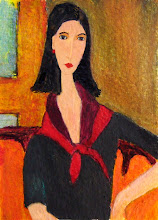"When we look at a photograph, a moment of magic occurs. It is as if someone had laid a sheet of translucent paper over our thoughts and made a tracing of our memories."
Tom Bentkowski
Sorting through a bookshelf full of albums this morning with the intention of putting our pre-digital photographs on CD for safe-keeping before we move house, I paused for a moment when I saw this photo of Yoweri Museveni, president of Uganda, taken at his inauguration in Kampala in 1996. Ah yes, I remember the day well…..
The mist curled like a gossamer ribbon through the valley and as the sun kissed the hills above it, Kampala came into focus like a city from a dream. The mosque dome shone like a polished jewel in its encircling crown of ivory minarets and the air smelled of wood smoke and eucalyptus. Clustered buildings glowed pink in early morning light and red kites soared above them like shadowy angels on gentle thermals.
Luca, our askari, waved his AK47 in the air with enthusiastic vigour and did a stomping dance of delight as he opened the gate for us. “Yoweri Museveni!” He bellowed, “FreeDOM fighter!” Then, wiping a hand down the front of his khaki jacket and smiling his familiar wide white smile, his eyes sparkling with merriment, he shook hands with each of us in turn.
As we walked from the house to join the crowd on the airfield, I heard the whack-whack thrum of a helicopter overhead and watched as its gleaming underbelly loomed large and then disappear down behind the line of trees in front of us. A gangly marabou stork, looking for a grasshopper breakfast, pecked at the grass on the verge beside the road and gave us a mad, lopsided stare as we passed him. Once the sound of the helicopter had diminished, birdsong swelled again like a cresting wave.
Idi Amin and Milton Obote had soaked this lush, sylvan country with the blood of several hundred thousand people until Museveni and his heroic bush army saved it from total devastation. This was the day he would be officially inaugurated as President of Uganda and we wanted to be there when it happened.
The airfield was ablaze with the swirling, vibrant colours of the Ugandan traditional dress and highlighted by the dazzling white kanzus which men wear for special occasions. We joined the crowd and people around us smiled and shook our hands, their faces alight with the joyful anticipation of a new day and a new dawn. The agony of decades of civil war behind them, they surged forward, taking us with them and making us theirs. We heard the pulsing drumbeat of victory and the high, melodious chant of beautiful clear voices which grew louder and stronger as we moved forward towards the podium.
Suddenly the crowd parted and in the space they left between them, a line of tall, powerful Karamojong warriors danced forward making a deep, sonorous hissing sound which rose higher and stronger until it sounded like the bottom note on a cathedral organ. Behind them, in a large, slow moving truck Museveni stood proudly, holding on to the roll bar with one hand, waving and acknowledging the surging crowd with a warmth that was palpable. He looked every inch the statesman.
As he reached the podium and climbed the steps to the microphones there was a sudden silence. I looked around at the sea of faces and, for the first time since we’d joined in the celebration, I realized ours were the only white faces amongst them. We were mazungu….but nobody had noticed. Or if they had, they had disregarded it and embraced us as theirs. My heart swelled with pride and I turned back to face the podium to listen to a hero speak.
Back to the present and strict word to self, “stop reminiscing and get back to work….!” Oh, but before I go, here is a novel by the Ugandan writer, Goretti Kyomuhendo, which you may enjoy as a departure from the ubiquitous ‘Last King of Scotland’ by Giles Foden.
Dissecting the vile consequences of life during and after civil strife can lead many authors into the quagmire of the blame game. With her novella Waiting, Kyomuhendo overcomes the need to induce universal guilt; instead she draws the reader into evocative and provocative prose that flits gently between the real and the surreal. Her haunting and gritty tale is set in Hoima, a rural town in western Uganda, during the madness-marked reign of Idi Amin.






























































